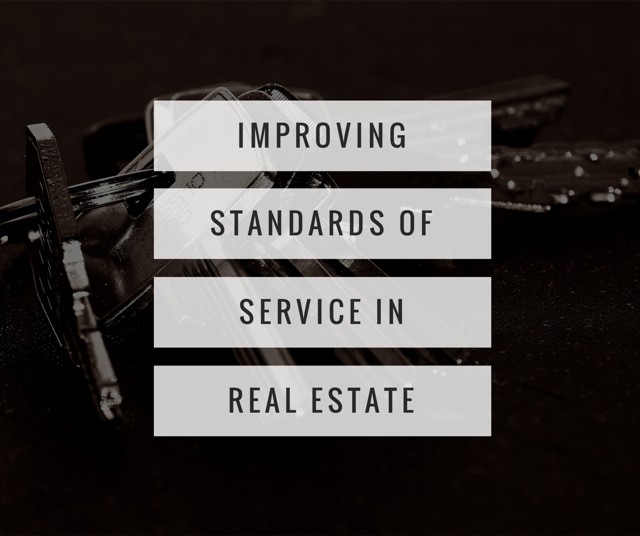Before you start reading: Do you work in property? Would you like to know how to build your business using email marketing? Visit: agentmonday.com
Updated: September 2020
When you read through articles on my blog, you might start to think I’m being a bit tough on our real estate industry. Some of you, on the other hand, might think I’m not being tough enough!
Here’s the thing: I am more passionate about this world than you could imagine. I have worked in it for 17 years (and counting) and have seen the good and the bad and everything in between.
It hurts me personally when I talk to members of the general public and they tear into real estate agents. They take the piss out of the industry (often with just cause) and I take that to heart. We all do. No one wants to work in a profession that is looked down upon by others. Boohoo right? Harden up, I know.
When people I don’t know, ask me what I do, my voice gets quieter and I say,“I’m a real estate agent” as quickly and as positively as possible, awaiting judgement.
When my wife first told friends of hers about me (before they had met me), many of their responses were along the lines of:
“Oh no! You’re not dating a real estate agent are you!”
I guess they were expecting me to be some sleazy douche-bag with way too much product in my hair, wearing a loud suit and a business shirt 2 sizes too small.
That ‘public perception’ has made me want to leave the real estate industry countless times.
The only way we are ever going to improve the public perception of our industry is to live by the high standards of service the public deserves and to see ourselves as professionals, along the same lines as doctors, lawyers, dentists, accountants.
Now you might read that and say…
“Hold on a minute – you’re not a doctor curing cancer, you’re just a real estate agent collecting commissions whenever someone sells a house…”
While this is true, I would also argue that good agents can have a very positive impact on your financial future, massively influencing your personal net worth when it comes time to sell. On the flip-side, a bad real estate experience follows you around for life, like a nasty breakup. I have met so many people with real estate stories that leave you shaking your head in disgust.
Real estate agents can have a big impact on your life, positive or negative.
How to improve things as quickly as possible…
The first step is education, for existing agents and the general public. Professionally, I no longer sell properties, allowing me to focus my energy on training agents, advising the public and blogging, 3 activities I am extremely passionate about.
Every article on this blog is written with the hope that the content will help you navigate the world of buying and selling property with more confidence, increased knowledge and a better chance of avoiding problems.
Some agents don’t like it when I share this sort of content but it is my humble opinion that until we have more transparency in our industry, we will always be viewed by some, as a necessary evil.
Real estate is slowly changing…
Professional real estate agents are out there if you know where to look. I meet them in every town I visit. Caring, forward-thinking individuals who are always looking for ways to improve their service. They work hard for their sellers and diligently follow the prescribed sales process, providing timely information to buyers without adding pressure or bullshit into the mix. These agents let the process take care of bringing about positive action. They see themselves as consultants rather than salespeople.
They get up early and work late (6-7 days per week) and take their role incredibly seriously.
There are still many bad apples that we need to flush out though, no doubt about it.
The REA has been a positive addition to the real estate industry. You can now search any agent you are interviewing on their database to view any past transgressions. The REA publicises recent cases and outcomes to the whole industry so we can be constantly educated in best practice. Regular training is now compulsory for all salespeople to complete every year.
The cost of being an agent is much higher than it used to be as well, which helps flush out the part-time ‘riff-raff’ who don’t take the job seriously enough.
There are still major issues though…
One of the problems in our industry is the sheer size of it, and the lack of consistent information amongst those agents who make up the workforce. Some know their craft inside and out, while others aren’t aware of the latest law changes and can’t read a title or LIM report to save themselves.
There are often differences of opinion as to how certain legislation or legal matters should be interpreted too. If it confuses the industry (who are the professionals) then it most certainly will confuse the public too.
You might think, how is it possible that these people aren’t experts? Isn’t it their job to know the right answers?
The issue is, real estate agents are expected to be experts in titles, LIM reports, building reports, Sale & purchase agreements, Tender forms, Auction documents, cross-lease agreements, tenure transitions (from cross-lease to freehold), subdivision, building codes, unitary plans, construction methods, consent requirements, online marketing, print advertising, copywriting, social media, negotiation, customer service, driving, email marketing, databasing, marriage counselling (sometimes). The list goes on…
On top of all that they are meant to be professional valuers too!
Inevitably, there are very few (if any) agents who are experts in all areas.
Real estate used to be a lot simpler. We didn’t have leaky homes, we had weatherboard 100sqm beazley boxes. We didn’t have unit titles, we had freehold or leasehold. Properties were sold with an asking price, or in some bases by Auction. Fancy approaches like ‘Buyer Enquiry Over X’, ‘Deadline Sale’ and ‘Expressions of Interest’ were nowhere to be found. Agents wrote sale and purchase agreements on their car bonnets (and they were one page long). No one bothered with a builders report.
“Weatherboard homes are basically fine as long as you paint ’em once every 30 years. Caveat Emptor all the way baby!”
But rightly so for the protection of those involved, and as technology has advanced, this has now changed.
What’s the answer?
Most real estate companies are still treating their agents like it’s 1974 and the conditions above still apply. Many current real estate franchise owners grew up during this simpler era where the recruitment policy was: Hire anyone that turns up and breathes hot air.
“Here’s a desk, here’s a phone book, now go sell something!”

This approach is destined to fail.
It’s why there is such high turnover in the real estate industry. It is generally accepted that 80-90% of all salespeople who complete their license requirements won’t survive 2 years in the business.
They are setup to fail. Sink or swim, that’s the approach.
Office owners won’t admit it publicly but many of them take the view that you are either going to be good or not. You can’t ‘train’ people to be good salespeople. They either have ‘the knack’ or they don’t. Also, it isn’t profitable to sink a whole lot of time into hand-holding newbies since you need to look after the 10% of agents who are making 90% of the money. They are the ones paying the bills at the end of the day.
This is how we end up with situations where salespeople aren’t singing from the same song sheet. Situations where they aren’t experts in their field.
I don’t think the general public realise how much of a spectrum there is when it comes to real estate salespeople. The difference between a newbie selling their 1st home and a professional 10-year veteran who has sold over 300 properties is too vast to describe here.
The REA is trying to change this with its 6 month ‘probation period’ for all new agents but it needs help from the industry. 6 months often just isn’t enough time to learn this business inside and out. Most new salespeople will be lucky to sell 2 or 3 houses during that period. Many sell zero.
One of the most successful agents I know didn’t sell a single house during their first 6 months, they went on to run a successful business selling 100+ per year. It takes time to get established in this industry.
Where to from here? I have seen signs of hope on the horizon…
1. I know of one real estate office that has a full-time compliance offer on their staff. This person doesn’t sell properties, but they inspect every listing agreement, sale & purchase agreement, lim and title and when there is an issue they will visit with the owners and discuss an appropriate way forward. This way the owner gets professional advice they can trust, from someone who has encountered similar issues in the past. This person is on a fixed salary and doesn’t have their commission on the line.
This ‘compliance’ role has traditionally gone to the office manager. Often these people aren’t even experts themselves though and if they work in a large office they are so busy putting out fires that they can’t realistically inspect every single clause, document and listing agreement that goes through their office. This is often where problems arise.
2. I know of another office that has an arrangement with a local solicitor so that every title of every property they market can be checked by a professional before it goes on the market.
3. I have heard of offices insisting on minimum standards of marketing for all their properties – eg. every home must have professional photography. Others have full-time professional copy-writers who are in charge of producing amazing descriptions of every property for sale. No more boring bullet points full of spelling mistakes, without a call to action!
4. There is one franchise I know that has a full-time community officer. One of their many jobs is to drive around the area over the weekend and check that all agents are following Council by-laws for open home signage, so you don’t have 20 open home arrows blocking street corners and causing traffic issues.
In conclusion:
Most of these solutions aren’t rocket science, and you may think they sound like common sense. They certainly aren’t the norm though, not yet anyway. These steps take a little bit of thought, some effort, some investment and an attitude that embraces change. A commitment to always be searching for continual improvement.
We need new salespeople to receive intense training, including role-playing and supervised client interaction before they are let loose on the public.
Every real estate office needs to have minimum standards of service around communication, market knowledge, advertising and negotiation skills that salespeople not only agree to but are tested and audited on regularly.
We simply can’t afford to let new agents practice on the public. This real estate industry approach of ‘throwing people in the deep end’ has to stop.
Sellers need to shop around…
You need to know what to look for. Seek out offices and salespeople that offer the above and use them. Sooner or later, other offices and individuals won’t have a choice but to implement better practices to compete in the real estate industry.
There is no silver bullet, but if we keep looking to add those 1%’ers that improve minimum standards of service the whole industry will benefit as a result, not to mention all members of the public who interact with us.
I dream of a world where a younger generation could take pride in the fact that they work in the real estate industry, having worked hard to secure their position and build up their professional ability to handle the biggest transaction most Kiwi’s will ever make.
What changes would you like to see in the real estate industry? I would love to hear your thoughts below.










Thank you for this Andrew…. i qualified 2 years ago and have delayed moving into this industry and part of my own reasons is the public perception of real estate agents. ( Like you, I take things to heart too …as I do not regard myself as being the ‘label’ or stigma, of the general public’s opinion.
I have invested a lot of my time and resources, gathering many resources including information from your blog site, and many other third party sites and reference material. so that when i eventually make the move , I am equipping myself with the tools to perform my role to best of my ability, as well as giving myself a decent ‘head start,’ I have also been doing my own homework as far as what I need questions I need to ask with respect to choosing an agency that resonates with my own expectations and beliefs, that has in- house training facilities for new sales people. ( I do not mind paying for this extra training – if it means that i can be of greater service to clients and customers).
I also realise and am prepared for the fact, that the first twelve months is going to be a steep learning cure and that there are going to be twist and turns.
What I have also discovered, the real estate sales persons course, despite the fact that this is very demanding course, which is great, as it raises the bar as far as raising the standards with the industry, is only a foundation for those wanting to build a career in this industry. themselves, to acquire specialised knowledge , as well as having an understanding of marketing skills, how to add value in the market place and build a reputation that is reliable and exceed a customers expectations, then, there is high probability that one is going to fail.
Furthermore, unless one treats this as ones own business, and not rely on the name above the door (The company name), then new entrants are going to fall well short of their own expectations.
The focus has got to be on the client and customer putting their needs foremost
Unfortunately, this is not always the case, and why the attrition rate is high for new agents in the real estate industry,